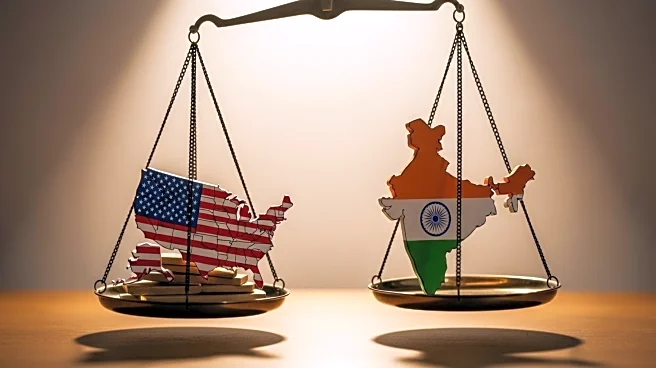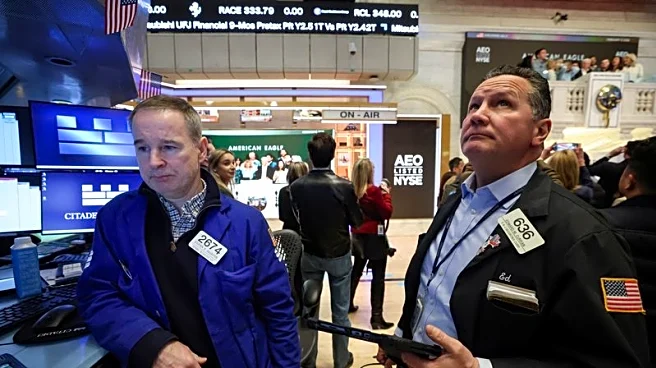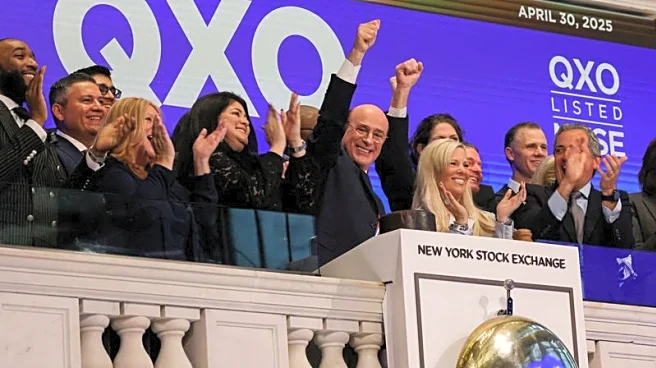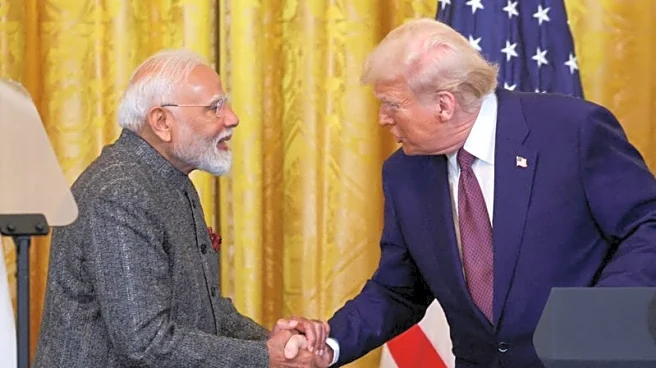What's Happening?
The U.S. has imposed 100% tariffs on branded and patented drug imports from India, sparing the country's generic drugmakers. Despite this, stocks of major Indian pharmaceutical companies, such as Sun Pharmaceutical and Divi's Laboratories, experienced declines of 2.5% and 3.5% respectively. The sector benchmark, Nifty Pharma Index, also fell by over 2%. According to Sudarshan Jain from the Indian Pharmaceutical Alliance, the impact on Indian companies, which primarily export generic drugs to the U.S., is expected to be minimal. However, investor concerns persist due to a series of recent U.S. actions, including increased tariffs and H-1B visa fee hikes, which have raised challenges for the Indian economy.
Why It's Important?
The imposition of tariffs and other trade measures by the U.S. reflects ongoing tensions in U.S.-India trade relations. While the direct impact on India's generic drug industry may be limited, the broader economic implications could be significant. Investors are worried about potential escalations in trade barriers, which could affect other sectors such as textiles, gems, jewelry, and marine products. These industries have already been impacted by previous tariff increases. The situation underscores the fragility of international trade relations and the potential for economic disruptions, which could affect market confidence and investment strategies.
What's Next?
The future of U.S.-India trade relations remains uncertain, with potential for further negotiations or escalations. Stakeholders in both countries may seek to address these tensions through diplomatic channels to prevent further economic impact. The Indian government may need to strategize on diversifying its export markets or enhancing competitiveness in affected sectors. Meanwhile, investors will likely continue to monitor developments closely, adjusting their portfolios in response to any changes in trade policies or economic indicators.
Beyond the Headlines
The ongoing trade tensions highlight the complex interplay between international diplomacy and economic policy. The U.S.'s actions may be part of a broader strategy to influence India's foreign policy decisions, particularly regarding its energy purchases from Russia. This situation raises ethical and strategic questions about the use of economic measures as tools of foreign policy. Additionally, the impact on investor sentiment could lead to shifts in global investment patterns, as market participants reassess risks associated with geopolitical uncertainties.










